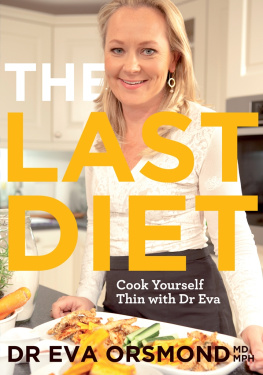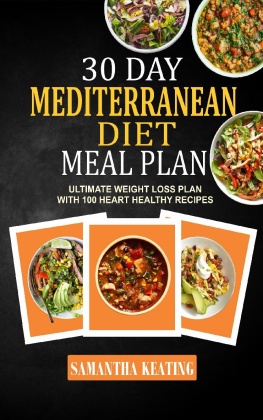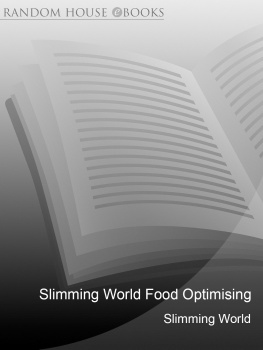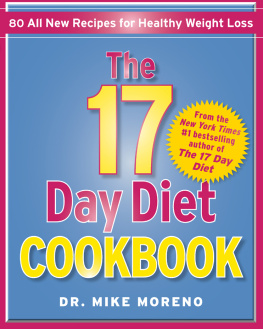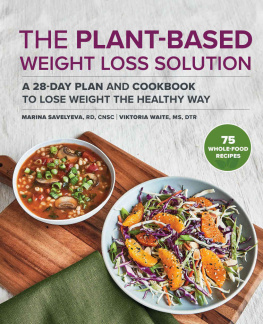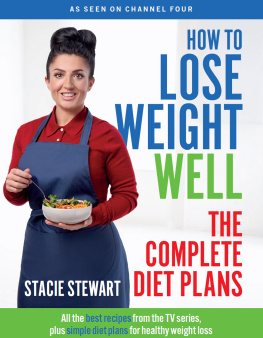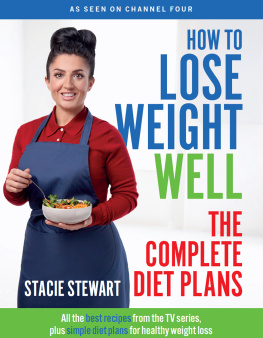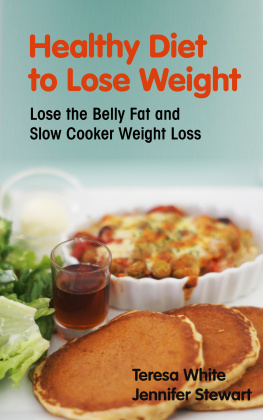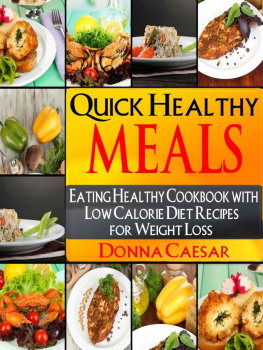
List of recipes

PHASE 1
Breakfast
Lunch
Dinner
Snacks
PHASE 2
Breakfast
Lunch
Dinner
PHASE 3
Breakfast
Lunch
Dinner
PHASE 4
Breakfast
Lunch
Dinner
Soups
Salads
SPREADS
Introduction

In my mothers kitchen it used to be either a feast or a famine. Her homemade food was tasty but full of calories, and when we ate, we ate well. But her weight and mine would slowly creep up and then reality would strike and it was diet time. We would try all sorts of diets with a reward in mind. Once we got it, for example a holiday, it was soon back to old habits and the kilos piled on. So, by the time I had finished my schooling and medical degree, a constant awareness of body weight and the effects of different foods and diets was in my genes. A few years later, while completing my Masters Degree in Public Health, obesity was being highlighted as a new epidemic and the experts were all trying to find a solution to the increasing obesity levels. Even though the solution could be so simpleeat less and exercise morein reality we all know it is not that easy!
With so much confusing advice out there and with all of us trying to find a quick way to lose weight, we are getting nowhere! I am not offering an easy way out, but we all need a little help. With simple weight-loss steps and tasty recipes, this book gives you the knowledge to help you achieve a healthy weight, in the same way patients in my clinics have done over the past 10 years.
My recipes and menus are a fusion of my Finnish roots and my mothers kitchen, my university years in Italy and my housewife childbearing years in South Africa. All these were combined with my new life in Ireland and attempts to maintain a healthy diet for myself, my two boys and husband. A never-ending challenge!
I have managed to do it, my patients have managed to do it and now I will show you how you can do it too without being a master chef!
PS. Thirteen has always been my lucky number, so this book has 13 chapters.
Chapter 1:
How did I put on this extra weight?
IN ORDER TO lose extra weight we have to look back and start figuring out when we started slowly, or quickly, piling on the pounds. Usually we can recall an event or period when this happened but in some cases obesity dates back to early childhood. History is important so that we can look back and correct what went wrong.
Obviously our sedentary lifestyle, with more people using cars and less physical activity, has an impact on our overall energy expenditure. We drive our children to school and would not dream of doing otherwise, but in our childhood we walked or cycled to school. The reasons for this are numerous but generally safety is the main issue. Things need to happen for us instantaneously these days and for this same reason we dont even want to spend time preparing a meal. Everything in our current lifestyle is geared to make us use less of our energy and use more fuel or other environmental energy, thus creating larger carbon footprints. Computer games are about as close to sport as some children get and watching TV is probably the most common childhood pastime. Not only are our children less active but they are also becoming less resourceful when it comes to childhood games because they are so used to passive entertainment. Although it is clear these environmental factors have reduced our physical activity and have contributed to our increasing weight, it is only a small part of the problem compared with the increased calorie intake in our everyday diet.
Then there are the most common day-to-day reasons for weight gain. The following are all contributory factors for increasing weight:
Getting married
Giving up smoking
Becoming pregnant
Changing jobs
Going on holidays
Going through puberty
Going through menopause
Moving to another country
Starting to study
Starting working, stopping working or retiring
Giving up exercise or being less active
Suffering from any form of serious illness
Ageing
Medical reasons (e.g. under-active thyroid, arthritis)
Medication
All of the above have something in commona change in routine.
We all have a routine that we follow. Even the most disorganised people have a no-routine, which is always the same. I have witnessed this very clearly in my clinic. Any change in routine inevitably changes what we eat and how many calories we burn. If this change causes an imbalance, it will affect our bodies either negatively or positively.
Weight gain is a very common and serious side effect of many commonly used drugs, for example antipsychotics, antidepressants, anti-convulsants (for epilepsy), anti-diabetic medications (insulin, and oral hypoglycaemic medication), steroids, beta blockers (very commonly used in the treatment of cardiovascular disease), etc. For some of these drugs the mechanism of action is fairly well understood, but for many others this remains unknown. If any of these drugs causes weight gain, they should be reviewed as alternatives are available.
Regardless of who you are or what your history is, if you eat (take in energy) in excess of what your body requires, then your body will store this energy as fat. There is no escape from this. As we are all unique, every individual has different energy needs and energy consumption. Even if you have a tendency to put on weight, it does not mean that you will inevitably gain weight. The fact is that on average we put on 0.52kg (1.14.4 lb) every year unless it is actively managed. Consider the following: one biscuit has about 75 caloriesif you ate 75 calories more than your body needed every day, over a period of one month this could result in approximately 300 g of extra weight, eventually leading to as much as 3.6 kg (half a stone) a year.
Taking into account all the additional health risks you are exposing yourself to, its no wonder that obesity is considered a chronic disease. Aside from the obvious physical health risks, I consider the silent negative psychological impact especially damaging.
Your everyday quality of life is diminished not only by the burden of carrying all that extra weight, but every moment of the day you are reminded that you are too big.
You find that you cant do things you used to do such as tie your shoelaces, clothes dont fit, the tummy love handles become a spare tyre, you puff around the golf course and by the evening, when you finally have time for yourself, you fall asleep in front of the TV, exhausted. I could carry on and on as the list of disadvantages is endless, but then again so are the positive benefits of weight reduction.
The traditional nutritional guidelines are not helping either. The disparity between what is right and what is wrong is huge. There are eat fat and get slim and low fat high carb diets that many of us have tried with varied success. I do not consider either to be the right waynothing will work as well as a balanced diet. We are given different and contradictory messages all the time about food and how to lose weight. So, how do you know that the message I am giving is the right one? I suppose you have to ask yourself if what I say makes sense, then its up to you to put it into practice. When you see how your health and your frame of mind improves as the excess weight slowly leaves you, you should be convinced. If you follow my advice, this time you wont see the excess weight returningit will be gone forever.
Next page
